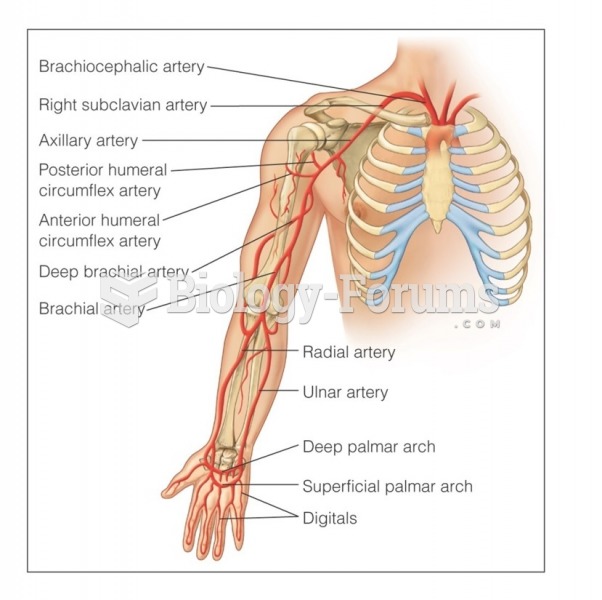|
|
|
Complications of influenza include: bacterial pneumonia, ear and sinus infections, dehydration, and worsening of chronic conditions such as asthma, congestive heart failure, or diabetes.
Increased intake of vitamin D has been shown to reduce fractures up to 25% in older people.
The longest a person has survived after a heart transplant is 24 years.
Fatal fungal infections may be able to resist newer antifungal drugs. Globally, fungal infections are often fatal due to the lack of access to multiple antifungals, which may be required to be utilized in combination. Single antifungals may not be enough to stop a fungal infection from causing the death of a patient.
People about to have surgery must tell their health care providers about all supplements they take.
 A mere one-half percent of Americans owns over a quarter of the entire nation’s wealth. Very few ...
A mere one-half percent of Americans owns over a quarter of the entire nation’s wealth. Very few ...
 An intermediate shaft drives the oil pump on this overhead camshaft engine. Note the main gallery ...
An intermediate shaft drives the oil pump on this overhead camshaft engine. Note the main gallery ...





